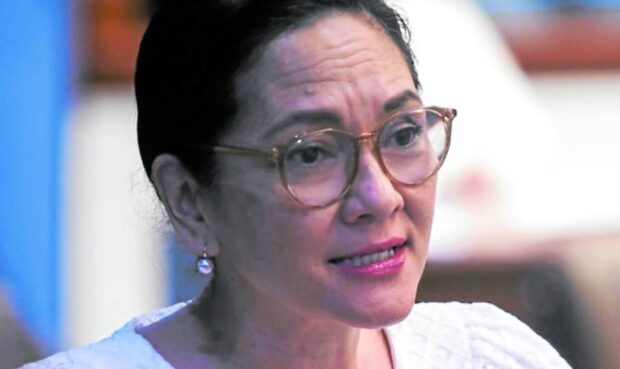COVID-19 allowances to be fully paid by 2026 – DOH

MANILA, Philippines — It may take the Department of Health (DOH) three years, or until 2026, to pay in full its past-due obligations amounting to P62.9 billion to all eligible health-care workers who served during the COVID-19 pandemic, Health Secretary Teodoro Herbosa on Tuesday told lawmakers.
Asked by Sen. Risa Hontiveros during his confirmation hearing in Congress about the projected timeline for the full release of the pending health emergency allowances (HEAs), Herbosa said it could take three years, “or shorter, hopefully.”
Last month, the DOH said the estimated arrears covered the period from July 1, 2021, to July 20 this year.
The allowances for eligible health workers are provided under Republic Act No. 11712, or the Public Health Emergency Benefits and Allowances for Health Care Workers Act, which was enacted on April 27, 2022.
Under the law, healthcare workers are entitled to HEAs for every month of service while the country is under a state of public health emergency. It sets an allowance of P3,000 for those deployed in low-risk areas, P6,000 for those in medium-risk areas and P9,000 for those in high-risk areas.
Since 2021, the Department of Budget and Management (DBM) said it has released a total of P64.17 billion to cover the payment of some 4.36 million COVID-19 allowances and compensation claims of eligible health workers.
Herbosa maintained that the DOH had consistently sought funding from the budget department for the unpaid HEAs.
Lack of funds
“Is it possible that the timetable will be shortened? Because you said at the latest, within three years. At the earliest, what can the department do?” Hontiveros asked Herbosa, who was confirmed at the hearing as the country’s health chief.
Citing the DBM, Herbosa responded that the unprogrammed funds could be released by the DBM as long as the country’s tax collection improves.
“The [DBM] said that the collection rate was low in 2021 and 2022, and that’s the reason they can’t disburse all the funds,” Herbosa noted. “But if our growth rate is high, I think there will be money to actually release it earlier.”
According to Herbosa, the remaining arrears for COVID-19 benefits from 2021 to 2023 covered about two million remaining health-care workers who have yet to receive their mandated HEAs in full.
About eight million eligible healthcare workers had already claimed their allowances, he said.
Under the 2023 General Appropriations Act, P19 billion was allotted to DOH for the payment of pandemic benefits, of which only P4 billion had been distributed.
However, the DOH also has unprogrammed funds, or “standby appropriations,” this year amounting to P52 billion for the release of HEAs.
“Once all these [funds] are provided, we will be able to cover all 10 million workers,” he said.
The latest funding request made by the DOH was on Nov. 29, when it wrote to the DBM to ask for the release of P25.96 billion for the medical front-liners.
Causes of delay
On the various issues that further delay the distribution of HEA funds to eligible workers, Herbosa said that a “grievance board” was formed to address formal complaints.
“So, the grievances are mostly people who are not paid, who were [on] the list or [were] removed by their director. They complain to our regional office, then our regional directors will [set up] a grievance committee, and we will settle it with the hospital director to make sure that those who really served in the COVID wards will be paid,” the health chief explained.
Another common issue, he added, was the “downgrading” of nonmedical front-liners, such as security guards, to the lowest risk classification.
“We have made some amendments, such as security guards who are in the front in the ER (emergency room). We sort of upgraded them so that they will get the correct benefits due them,” Herbosa said.
COVID-19 benefits were first called “special risk allowances,” as stipulated in the Bayanihan 2 law. It was later replaced with One COVID-19 Allowance, or OCA, as it was deemed “more inclusive” by the health agency.
In April 2022, OCA was renamed HEA, as provided under RA 11712.
Protest vs confirmation
During a lunchtime picket on Tuesday, members of the Alliance of Health Workers (AHW) criticized the Marcos administration for not acting on their demands to release their long overdue HEAs and increase their starting salary.
“It is infuriating that this government seems deaf, blind, and insensitive to [us] when it comes to our rights and welfare. Some of our fellow health workers in private and LGU (local government unit) hospitals and facilities did not receive any centavo of this allowance,” said Ricardo Antonio, president of the National Orthopedic Hospital Workers Union-AHW.
He pointed out that many healthcare workers still earn below the estimated family living wage of P1,100 a day or P33,000 a month.
AHW also asked the Commission on Appointments to “reconsider” the confirmation of Herbosa’s appointment as DOH secretary, claiming that he is “an anti-health worker, a Red-tagger, and supports the privatization of public hospitals and health services.”
